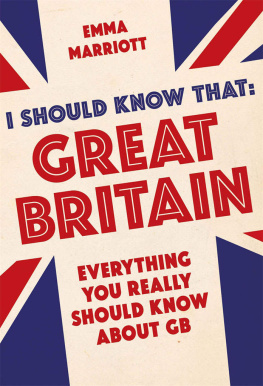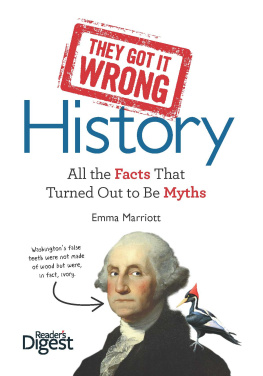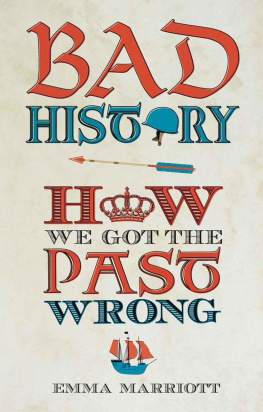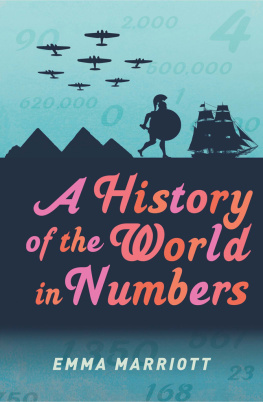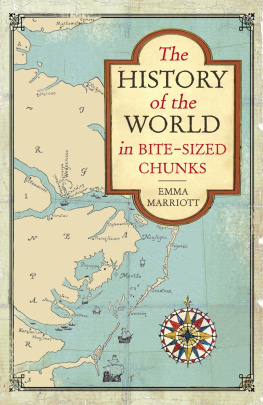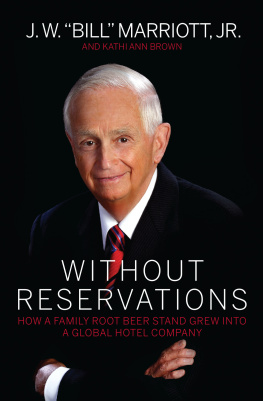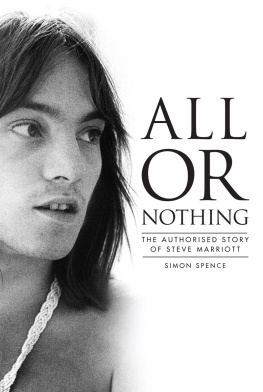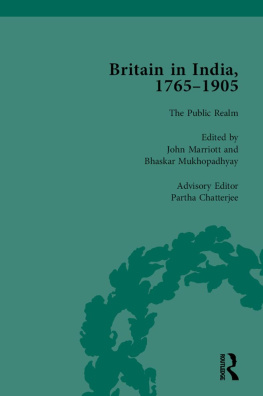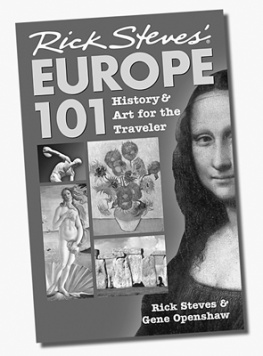Marriott - I Should Know That: Great Britain
Here you can read online Marriott - I Should Know That: Great Britain full text of the book (entire story) in english for free. Download pdf and epub, get meaning, cover and reviews about this ebook. year: 2015, publisher: Michael OMara, genre: Art. Description of the work, (preface) as well as reviews are available. Best literature library LitArk.com created for fans of good reading and offers a wide selection of genres:
Romance novel
Science fiction
Adventure
Detective
Science
History
Home and family
Prose
Art
Politics
Computer
Non-fiction
Religion
Business
Children
Humor
Choose a favorite category and find really read worthwhile books. Enjoy immersion in the world of imagination, feel the emotions of the characters or learn something new for yourself, make an fascinating discovery.
I Should Know That: Great Britain: summary, description and annotation
We offer to read an annotation, description, summary or preface (depends on what the author of the book "I Should Know That: Great Britain" wrote himself). If you haven't found the necessary information about the book — write in the comments, we will try to find it.
I Should Know That: Great Britain — read online for free the complete book (whole text) full work
Below is the text of the book, divided by pages. System saving the place of the last page read, allows you to conveniently read the book "I Should Know That: Great Britain" online for free, without having to search again every time where you left off. Put a bookmark, and you can go to the page where you finished reading at any time.
Font size:
Interval:
Bookmark:
Also by the same author:
I Used to Know That: History
Bad History: How We Got the Past Wrong
A History of the World in Bite-Sized Chunks
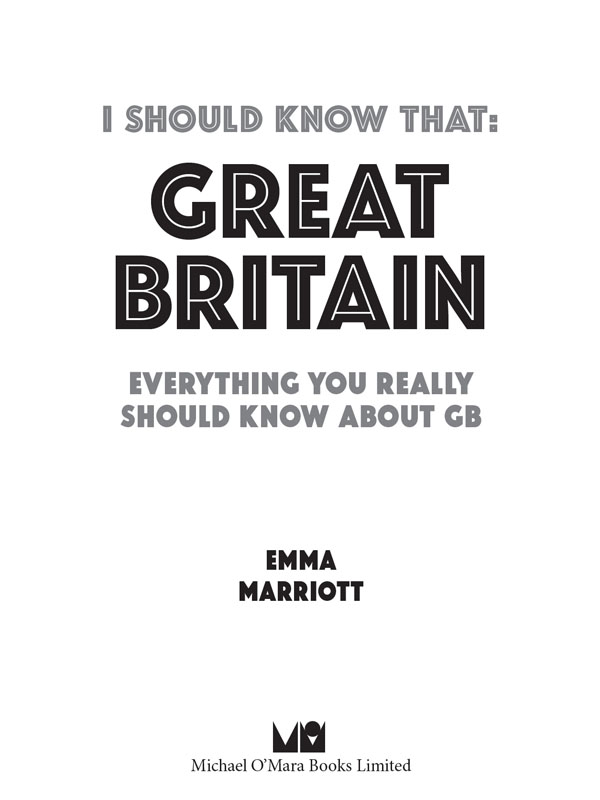
This ebook edition first published in 2015
First published in Great Britain in 2013 by
Michael OMara Books Limited
9 Lion Yard
Tremadoc Road
London SW4 7NQ
Copyright Emma Marriott 2013, 2015
All rights reserved. You may not copy, store, distribute, transmit, reproduce or otherwise make available this publication (or any part of it) in any form, or by any means (electronic, digital, optical, mechanical, photocopying, recording or otherwise), without the prior written permission of the publisher. Any person who does any unauthorized act in relation to this publication may be liable to criminal prosecution and civil claims for damages.
A CIP catalogue record for this book is available from the British Library.
ISBN: 978-1-78243-431-3 in paperback print format
ISBN: 978-1-78243-066-7 in hardback print format
ISBN: 978-1-78243-163-3 in ebook format
Cover design by James Empringham
Illustrations by Siaron Hughes
Designed and typeset by K.DESIGN, Winscombe, Somerset
www.mombooks.com


Political language is designed to make lies sound truthful and murder respectable, and to give an appearance of solidity to pure wind.
GEORGE ORWELL IN SHOOTING AN ELEPHANT (1950).
In his critique of political prose, Orwells argument was that politicians use vague language to obfuscate the truth. And hes right: politicians and their like are masters of evasiveness, wriggling out of tricky questions by hastily changing the subject or by delivering an incomprehensible stew of an answer bubbling with political jargon and gobbledegook. Often, they might also say something they really shouldnt or get their facts wrong, as admittedly we all do, but their errors, omissions, or off-the-cuff remarks can prove their undoing when they are made in full public glare.
British Prime Minister David Cameron was caught very publicly unaware when he struggled to answer a .) Despite this, and knowing that the show aired to millions of US viewers, Cameron quipped, This is bad, I have ended my career on your show tonight.
To add to Mr Camerons embarrassment, the questions he failed to answer were of the type found in the Life in the United Kingdom test, which must be taken by immigrants seeking British citizenship or permanent residency in the UK. Made up of twenty-four multiple-choice questions, the examination tests knowledge of the English language as well as important aspects of British life, its society, government, employment and values. It also includes a fairly heavy dose of British history, ranging from the Stone Age to the coalition government and beyond.
While the average pass rate for candidates seeking residency in the UK is a pretty impressive 70 per cent, its clear that the vast majority of us Brits would struggle with many of the tests quite tricky (and, some have argued, irrelevant) questions. How many people, I wonder, could outline the powers of the devolved governments of Scotland, Wales and Northern Ireland? Or summarize the events of the Wars of the Roses? Or know who can and cannot stand as an MP in Britain? And if asked to define the difference between the European Commission, European Council, and the Council of Ministers, Im guessing that most Brits would break out in a cold sweat.
Nonetheless, this is the kind of information that all of us should really know about, much of which is provided in this book, with an outline of key events in British history (illustrious or not), the geography of the isles and the ever-changing make-up of British society, the countrys laws and system of government, as well as its cultural pursuits and achievements. The book touches on the kind of information covered in the Life in the UK test but doesnt slavishly adhere to it, including extra bits of ephemera (like top-ten accidents in the garden or slang terms for Brits) that may not quite fit the remit set by the British Home Office.
And to enliven all the facts and stats, weve liberally sprinkled in some of the dumbest quotes, blunders and misfires from politicians, officials and their ilk, just so you know youre not alone in your ignorance. Luckily for us, they didnt follow the advice of fellow MP Norman Tebbit, who once said, Far better to keep your mouth shut and let everyone think youre stupid than open it and remove all doubt.
EMMA MARRIOTT

From the countrys flags and patron saints to its rousing national anthems and the affectionate (and not so affectionate) names by which its inhabitants are sometimes known, the identifying aspects of the UK are plentiful.
UNITED KINGDOM OR GREAT BRITAIN?
Britains official title today is the United Kingdom of Great Britain and Northern Ireland. However, it has not always been so. In 1707, Great Britain, which comprised England, Scotland and Wales, was formed by the political union of England and Scotland under the Acts of Union. In 1801, Great Britain merged with Ireland to create the United Kingdom of Great Britain and Ireland, and in 1922 the name changed to the United Kingdom of Great Britain and Northern Ireland, when most of Ireland seceded from the Union.
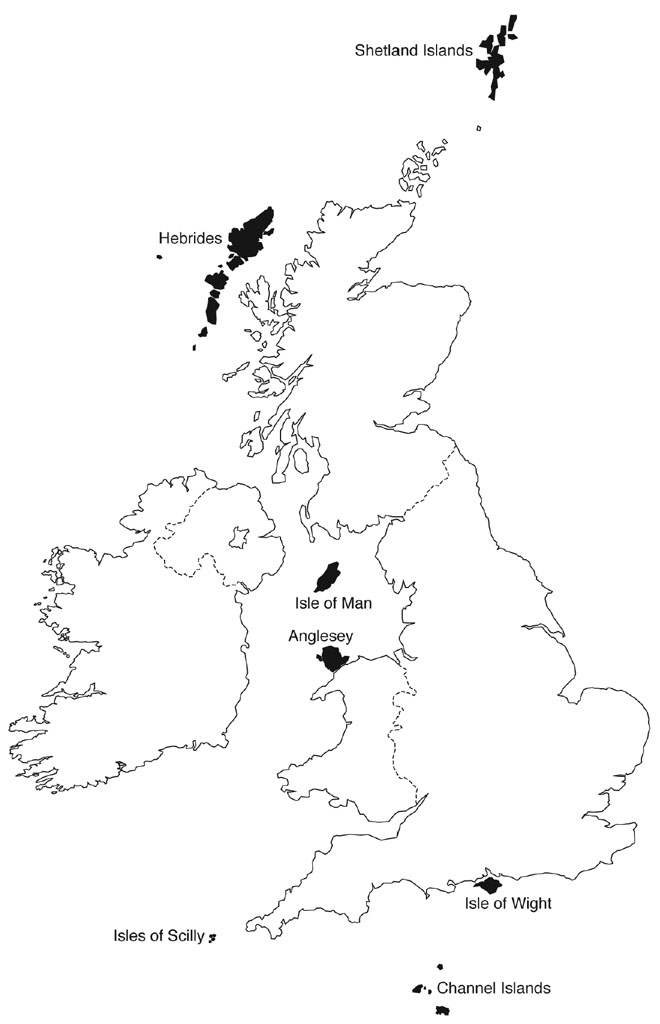
As Secretary of State for Ireland Peter Mandelson misses out a crucial word in his opening statement to the House of Commons in October 1999 after taking up his post of Northern Ireland Secretary of State.
Smaller islands off the British mainland such as the Isle of Wight, Anglesey and the Isles of Scilly, Shetlands and Hebrides form part of the British political union. The Channel Islands and the Isle of Man are not part of the United Kingdom. They are self-governing British crown dependencies with their own legal systems and legislatures, although the British government is responsible for their foreign relations and defence. Following devolution (see ), Scotland, Wales and Northern Ireland have developed their own administrations that are responsible for many domestic policy issues.
The name Britain derives from the Roman name for the British Isles, Britannia (land of the Britons). The much older Celtic name Albion is still sometimes used today as a poetic reference to the British Isles. Alba, derived from Albion, is also the Gaelic name for Scotland (Albain in Irish and Alban in Welsh).
MAJORS VISION
Fifty years on from now, Britain will still be the country of long shadows on country [cricket] grounds, warm beer, invincible green suburbs, dog lovers and pool fillers and old maids cycling to Holy Communion through the morning mist.
THEN BRITISH PRIME MINISTER JOHN MAJOR IN A SPEECH TO THE CONSERVATIVE GROUP FOR EUROPE ON 22 APRIL 1993.
John Majors aim with this somewhat fanciful image of Great Britain was to convince the Conservative Party that he could defend the country when negotiating with the European Union. Satirists and the like responded with derision, to which he answered that he had simply quoted some poetry to illustrate that the essential characteristics of our country would never be lost by a deepening relationship with the European Union. Major had possibly never read the original source as some of the words concerning the old maids were in fact borrowed from George Orwells essay, The Lion and the Unicorn, a socialist call to arms and vision of wartime Britain. Orwell also wrote of the crowds in the big towns with their mild knobby faces, their bad teeth, which was conveniently omitted from Majors speech.
Font size:
Interval:
Bookmark:
Similar books «I Should Know That: Great Britain»
Look at similar books to I Should Know That: Great Britain. We have selected literature similar in name and meaning in the hope of providing readers with more options to find new, interesting, not yet read works.
Discussion, reviews of the book I Should Know That: Great Britain and just readers' own opinions. Leave your comments, write what you think about the work, its meaning or the main characters. Specify what exactly you liked and what you didn't like, and why you think so.

